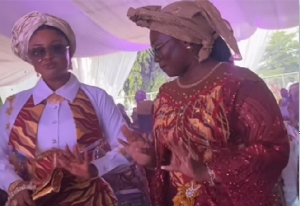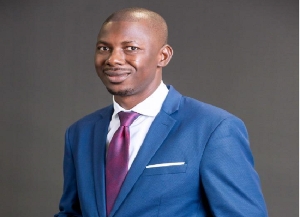General News of Friday, 17 April 2020
Source: www.ghanaweb.com
Be mindful of criticisms, not all govt appointees are riffraff – Prof Gyampo cautions
Outspoken political science lecturer at the University of Ghana, Prof Ransford Gyampo has asked Ghanaians to tread cautiously and not be quick to criticize policymakers when they introduce new initiatives.
He stated that although everyone was at the liberty to critique government it did not warrant for people to make misplaced and misguided comments about matters, they may not understand or be privy to the entire picture.
Prof Gyampo observed that oftentimes, such a stance, “amounts to a palpable display of a certain level of arrogance on our part, that makes it difficult for policymakers to listen to constructive opposing suggestions.”
He also stressed that “democracy and the right to free speech, are not licentious for branding every decision of government as senseless. It may be senseless to some commentators, purely because they may not be privy to the considerations and motives behind the decision.”
In a statement copied to Ghanaweb, he averred that “we must approach our critique of government policy initiatives, actions and inactions, with some trepidation and open-mindedness, knowing that sometimes, we may not know what policymakers know.”
Despite admitting that there may be some bad nuts among appointees of a government, he maintained that there was the need to avoid making general cynical comments about policymakers.
“Just as winner-knows-all is bad, so is Opposition/Media/CSO/Opinion Leader-knows-all. Critiquing everything by a government, without trying to at least, understand why certain decisions were taken, from the perspective of the policymaker, only ushers us into an inconsequential regime of cynicism.
Not all appointees may have what it takes to be reposed with positions of trust. But certainly, not all appointees are incompetent and riffraff. It cannot be possible that governmental decisions are taken without expert input and wide-range consultations, with those who know better, than those of us who are sometimes mere commentators.
Let us not weaken the hands of power bearers because of democracy. Let us not discourage initiative because of cynicism,” Prof Gyampo added.
Read his full statement below
We must approach our critique of government policy initiatives, actions and inactions, with some trepidation and open-mindedness, knowing that sometimes, we may not know what policymakers know.
Sometimes, we all fall into the unfortunate trap of creating the impression that, a government instituted by the people, is woefully incompetent, and made up of stupid people, who cannot think properly, simply because, our opinions are different from theirs. This in all fairness, isn’t only offensive, but also unfair. It amounts to a palpable display of a certain level of arrogance on our part, that makes it difficult for policymakers to listen to constructive opposing suggestions.
In any democracy, particularly fledgling ones, criticisms that assume that a government is always incompetent, are also always met with high-handed dismissive responses or they are utterly ignored. In Ghana, if you do, the babies with sharp teeth will show you some small “atiwa”.
Just as winner-knows-all is bad, so is Opposition/Media/CSO/Opinion Leader-knows-all. Critiquing everything by a government, without trying to at least, understand why certain decisions were taken, from the perspective of the policymaker, only ushers us into an inconsequential regime of cynicism.
Not all appointees may have what it takes to be reposed with positions of trust. But certainly, not all appointees are incompetent and riffraff. It cannot be possible that governmental decisions are taken without expert input and wide-range consultations, with those who know better, than those of us who are sometimes mere commentators.
Let us not weaken the hands of power bearers because of democracy. Let us not discourage initiative because of cynicism.
For accountability purposes, let us critique, but let us not always pretend we know better than government. Let what we say, sometimes, be tampered by the fact that we may see things from different perspectives, given our different standpoints. Again, let us be guided by the truism in the history of our 4th Republic that, the loudest cynic outside government, wouldn’t necessarily perform better when given the mandate to serve in government.
Democracy and the right to free speech, are not licentious for branding every decision of government as senseless. It may be senseless to some commentators, purely because they may not be privy to the considerations and motives behind the decision. But should lack of information about a governmental course of action necessarily render such an action senseless? For instance, I honestly do not understand the essence of the recently held Virtual Concert and the fact is, I do not have much information about it, to enable me make an emphatic judgement about it. It may look senseless but, perhaps, with the right explanations, we may revise our description.
It isn’t a just society when everything a government does, is wrong and even when they get it right, we find faults with what they got right.
The government must also be willing to offer expertise and credible defence of its stands. This is helpful in preventing misinformation, ignorance, rumours and sometimes, needless criticisms from people who may not have all the facts and information. Taking decisions with expertise input and refusing to explain or offer defence in the wake of cynicism, is a needless political suicide that a regime can commit.
In defending government policies and offering explanations, government must properly diversify its outlets. One finite and mortal human being, cannot always be the repository of all documents on governmental information and explanations. It is monotonous. It is boring. It could gradually weaken the value placed on this voice by the public in our public policy and political discourse.
There are other experts and consultants whose counsel may have led to a particular policy initiative. Let them speak to clarify and defend. Given that, party communicators and “social media political land-guards” tend to rather annoy, confuse the issues, and create disaffection in their attempt to offer explanations, they must be deployed as the last resort. For, the explanations of governmental policy initiatives by experts may likely engender sober responses, even from cynical political opponents.
Yaw Gyampo
A31, Prabiw
PAV Ansah Street
Saltpond
&
Suro Nipa House
Kubease
Larteh-Akuapim











